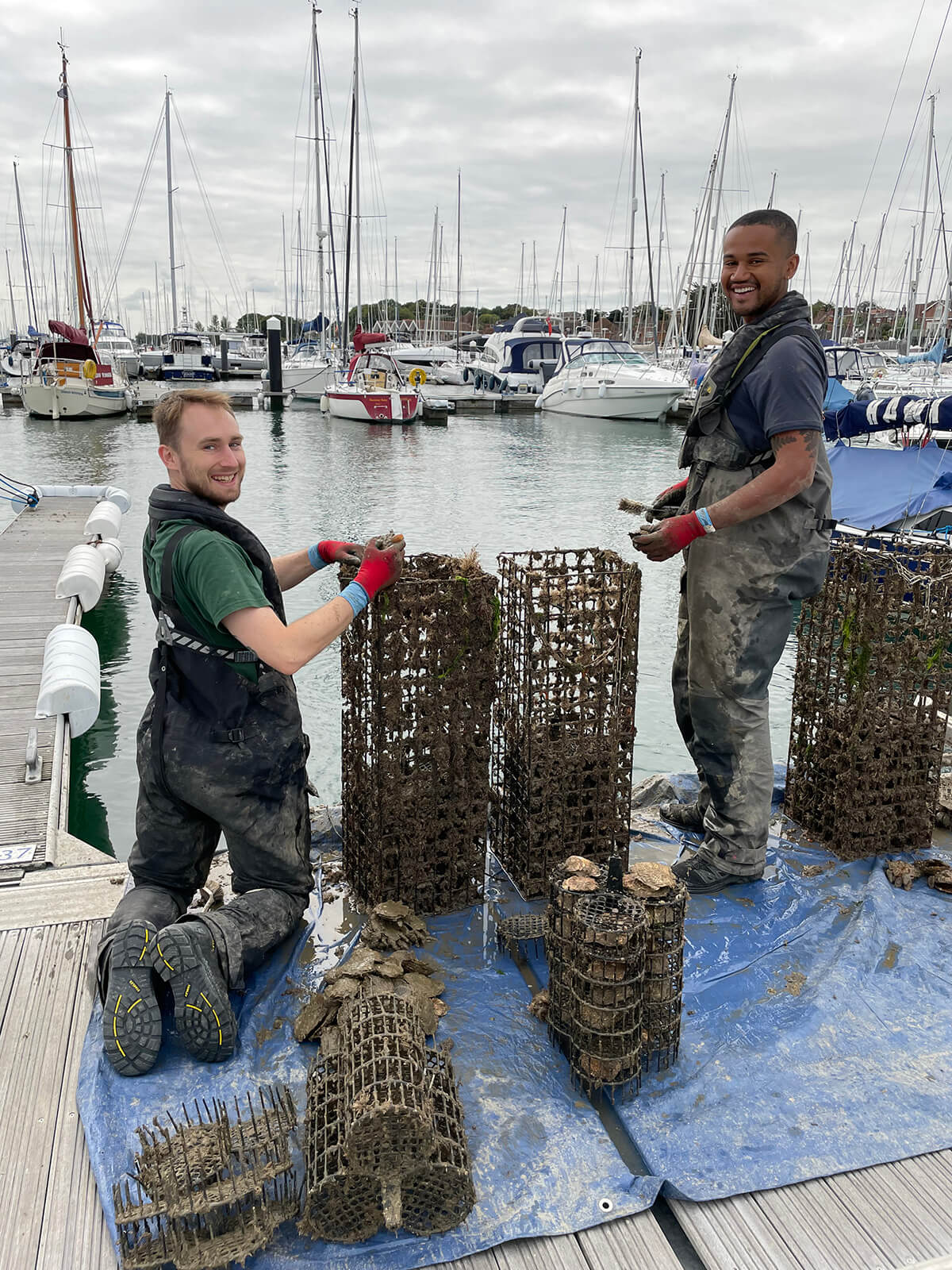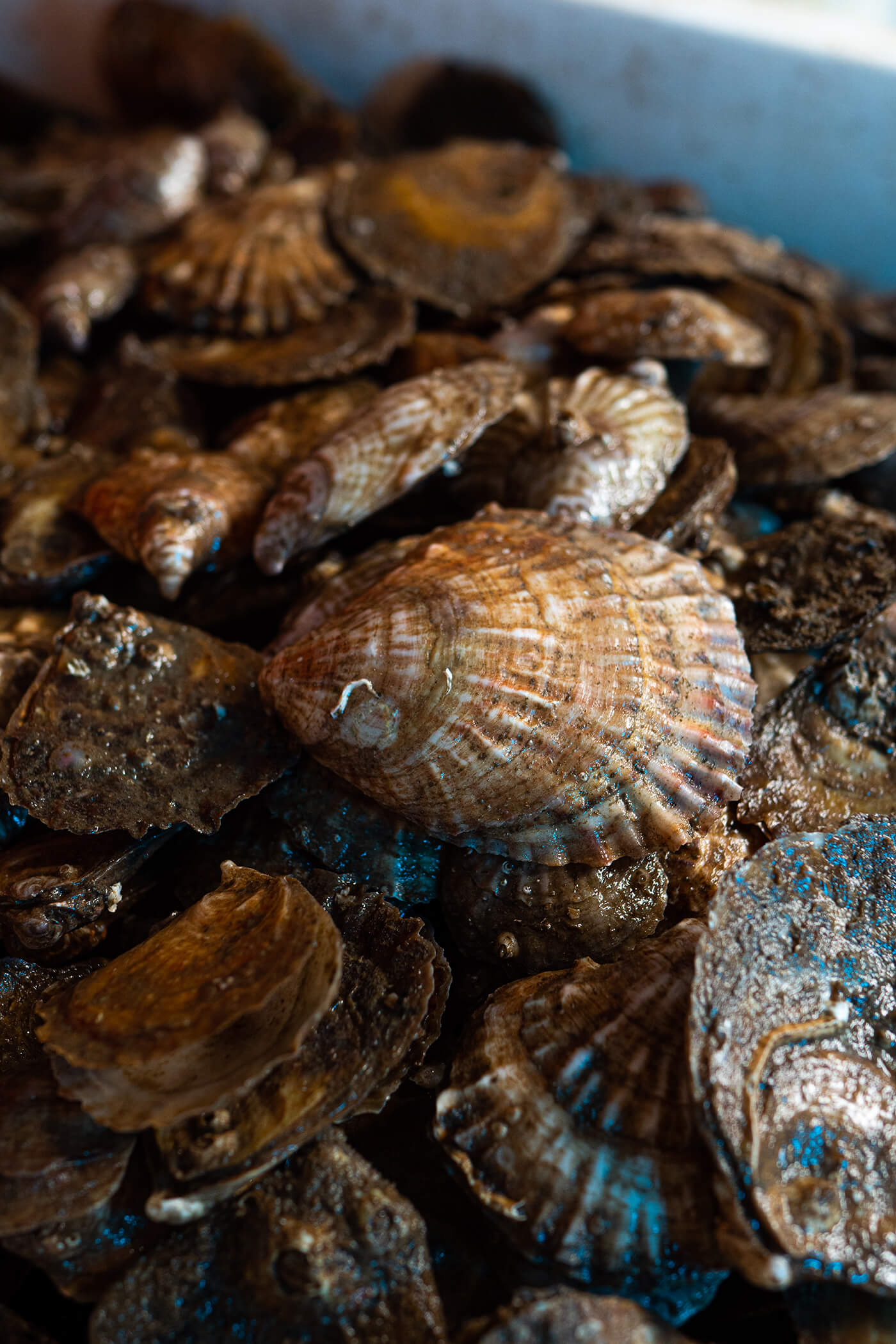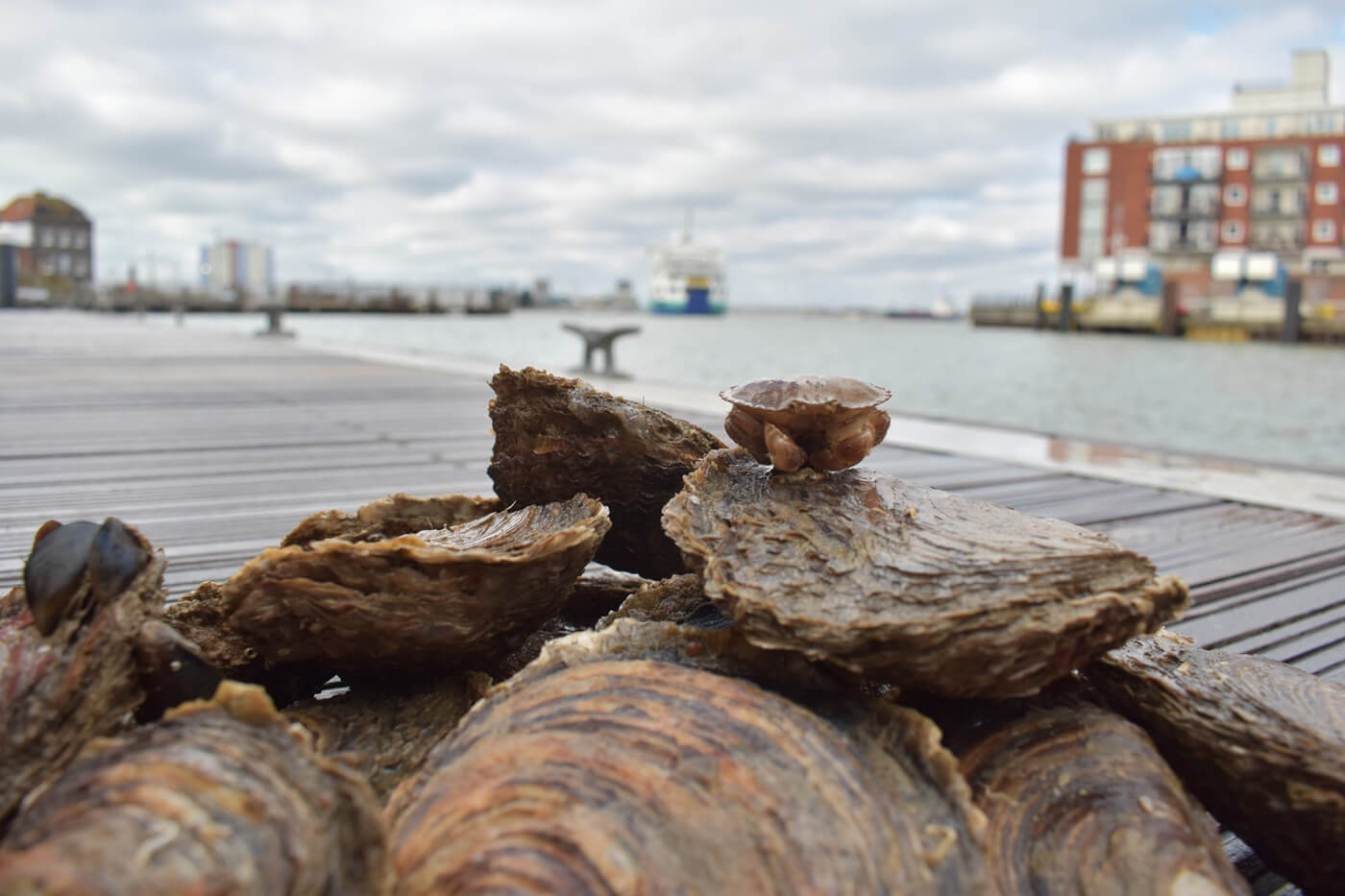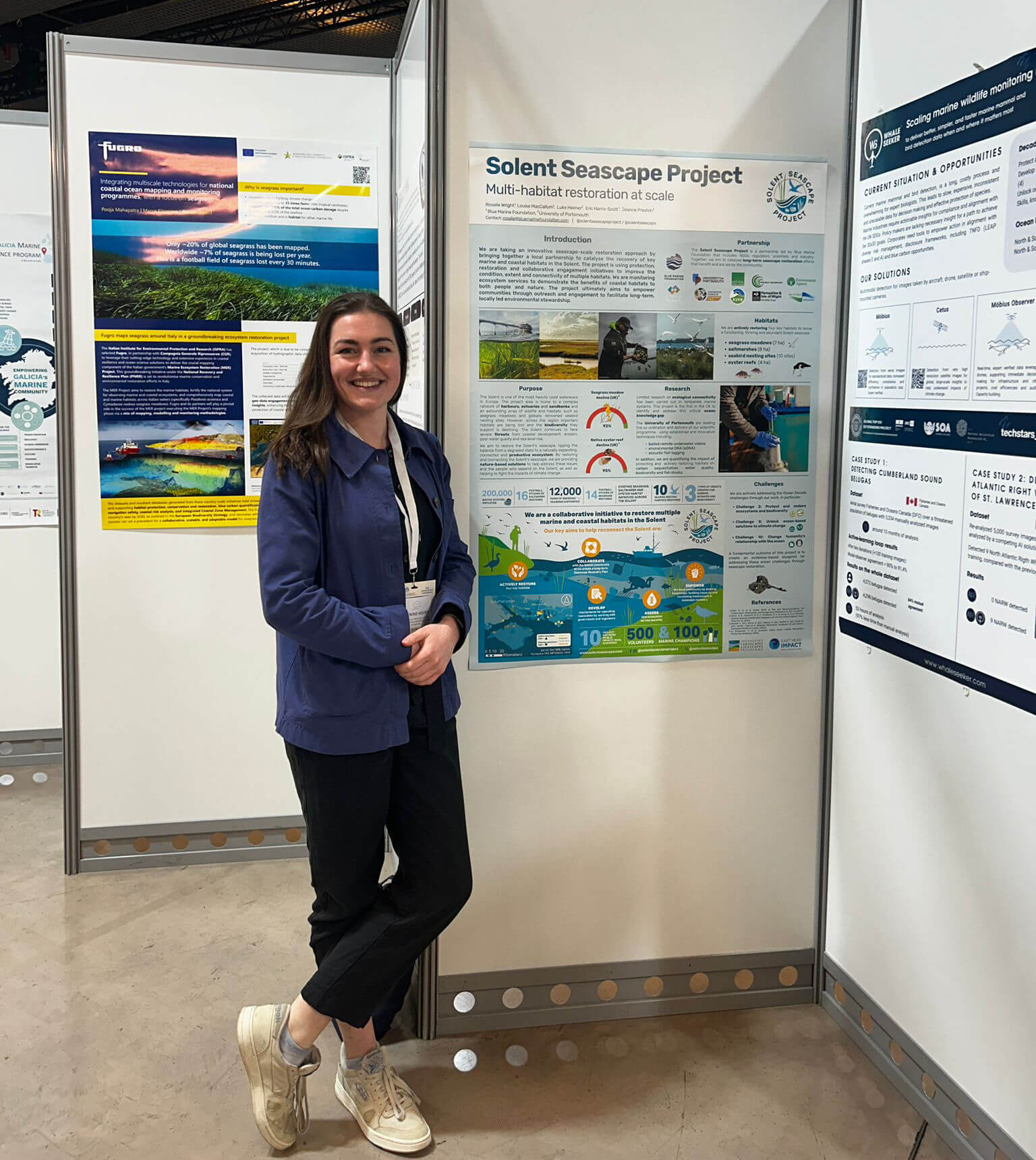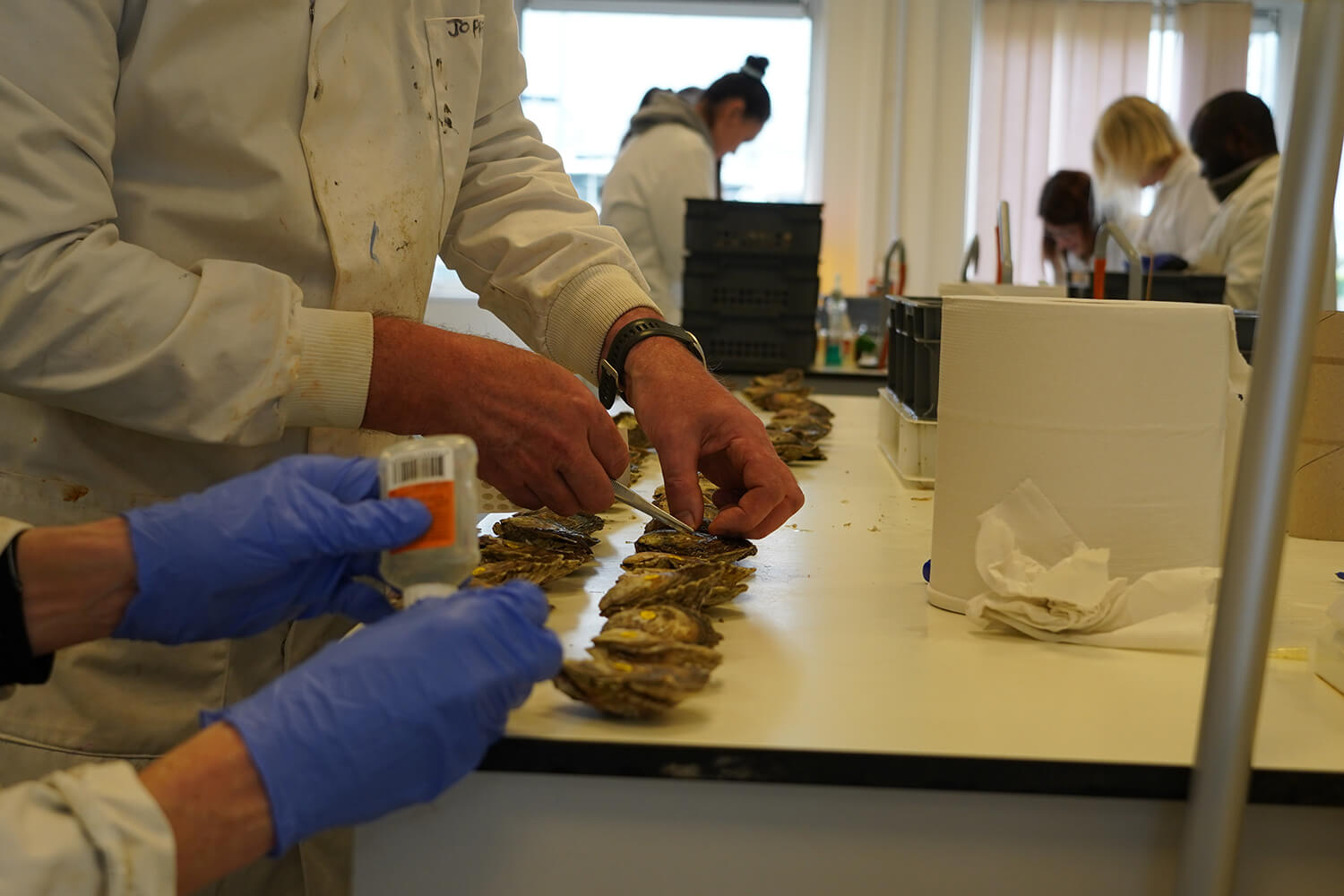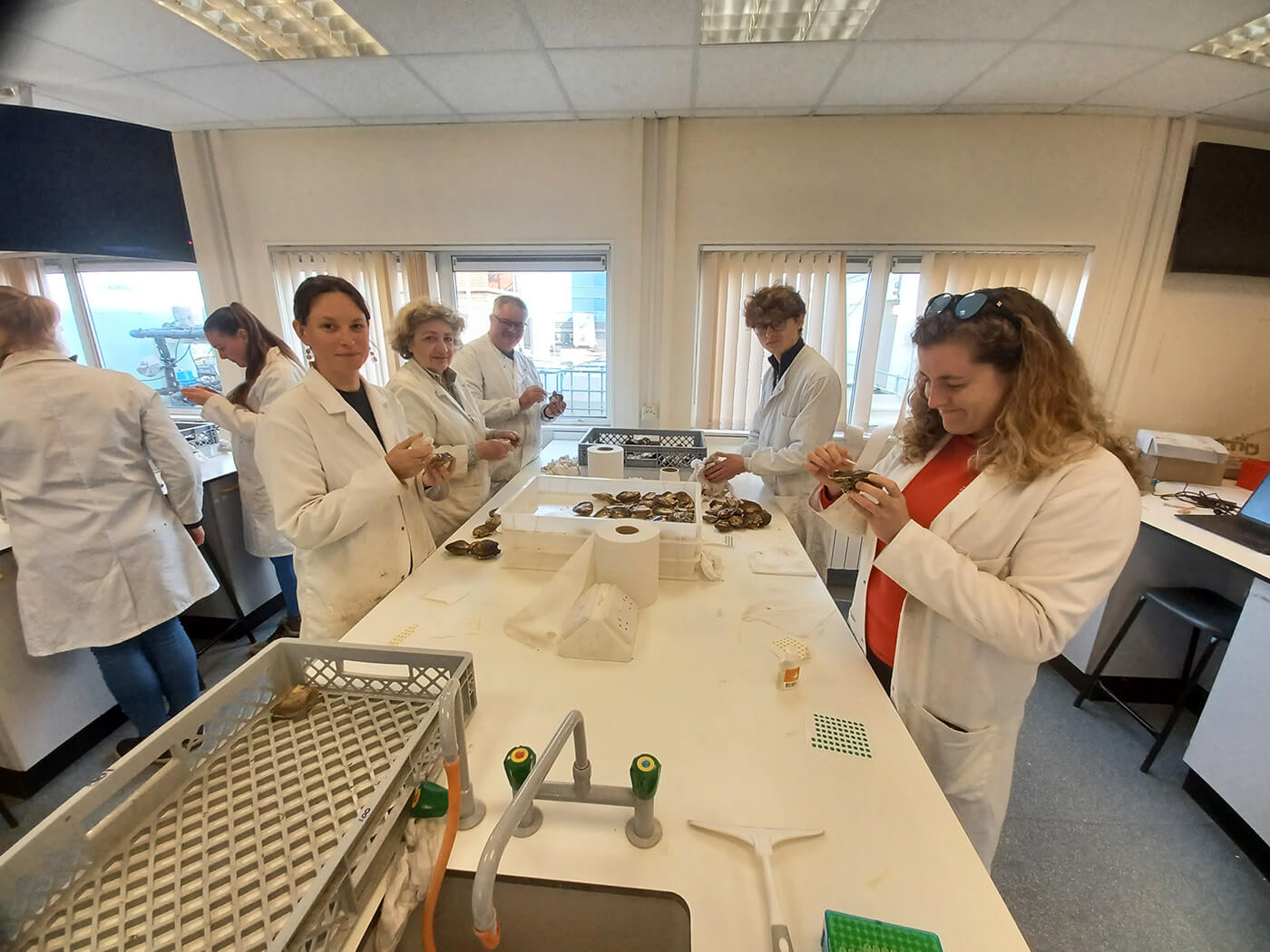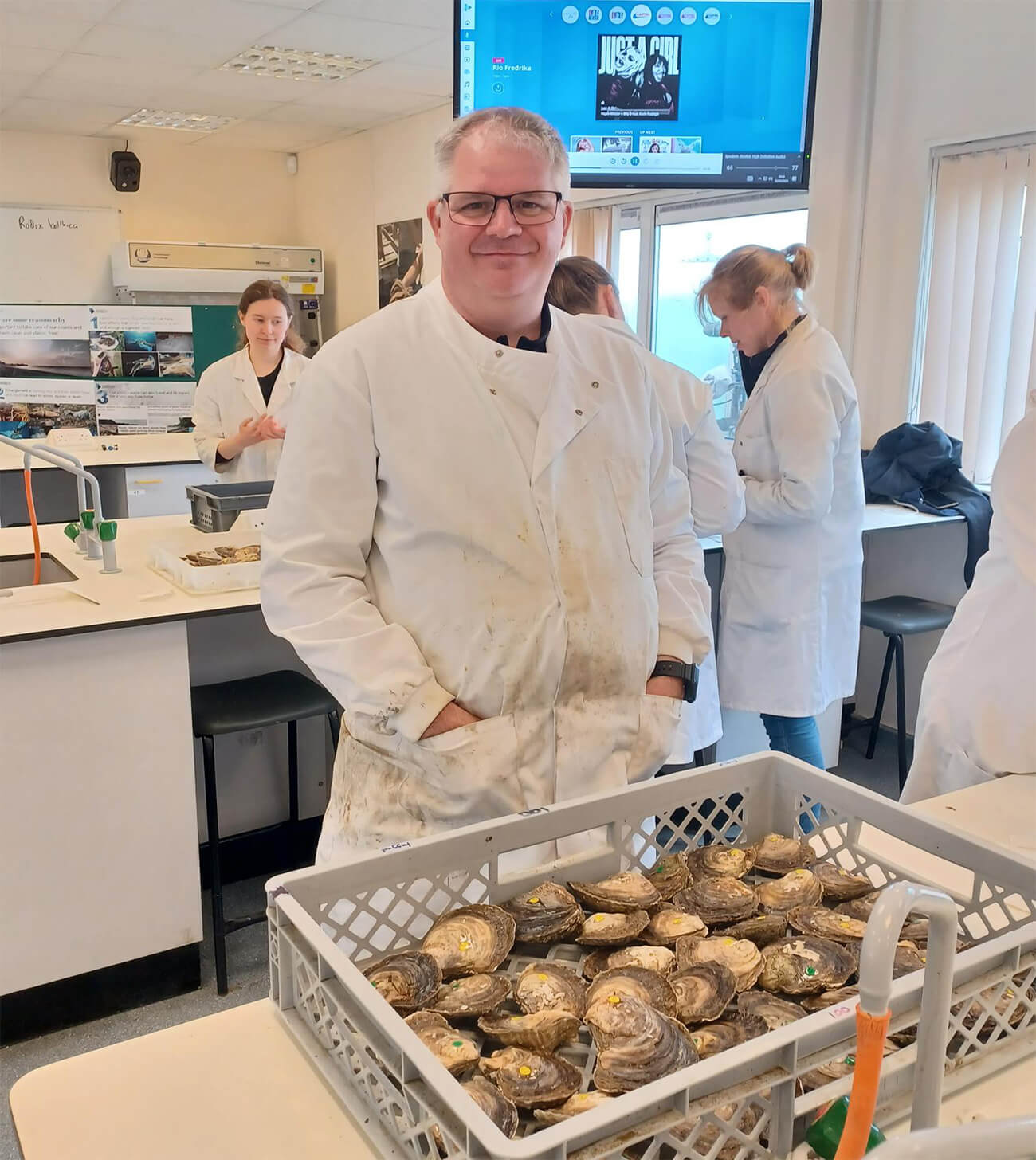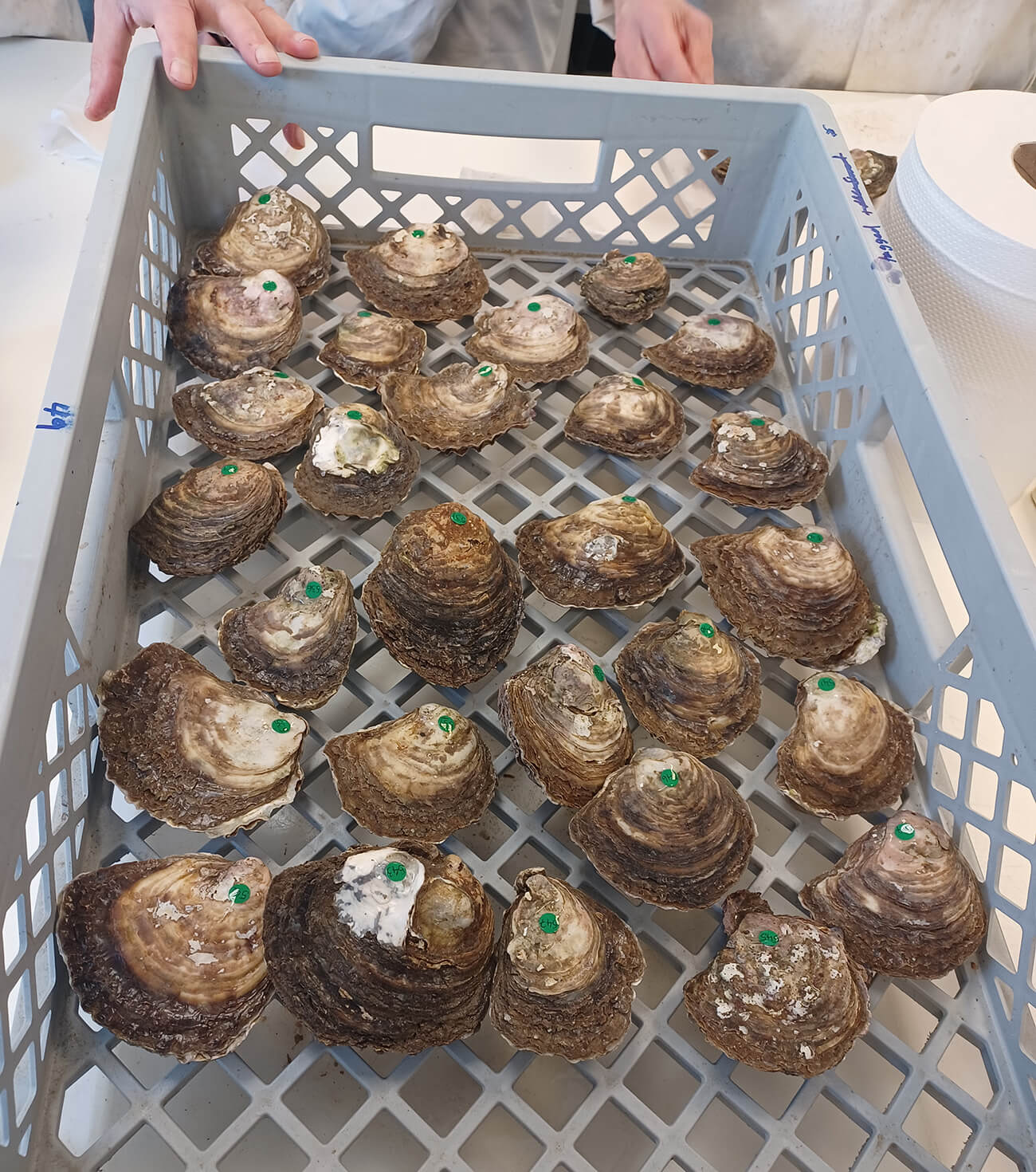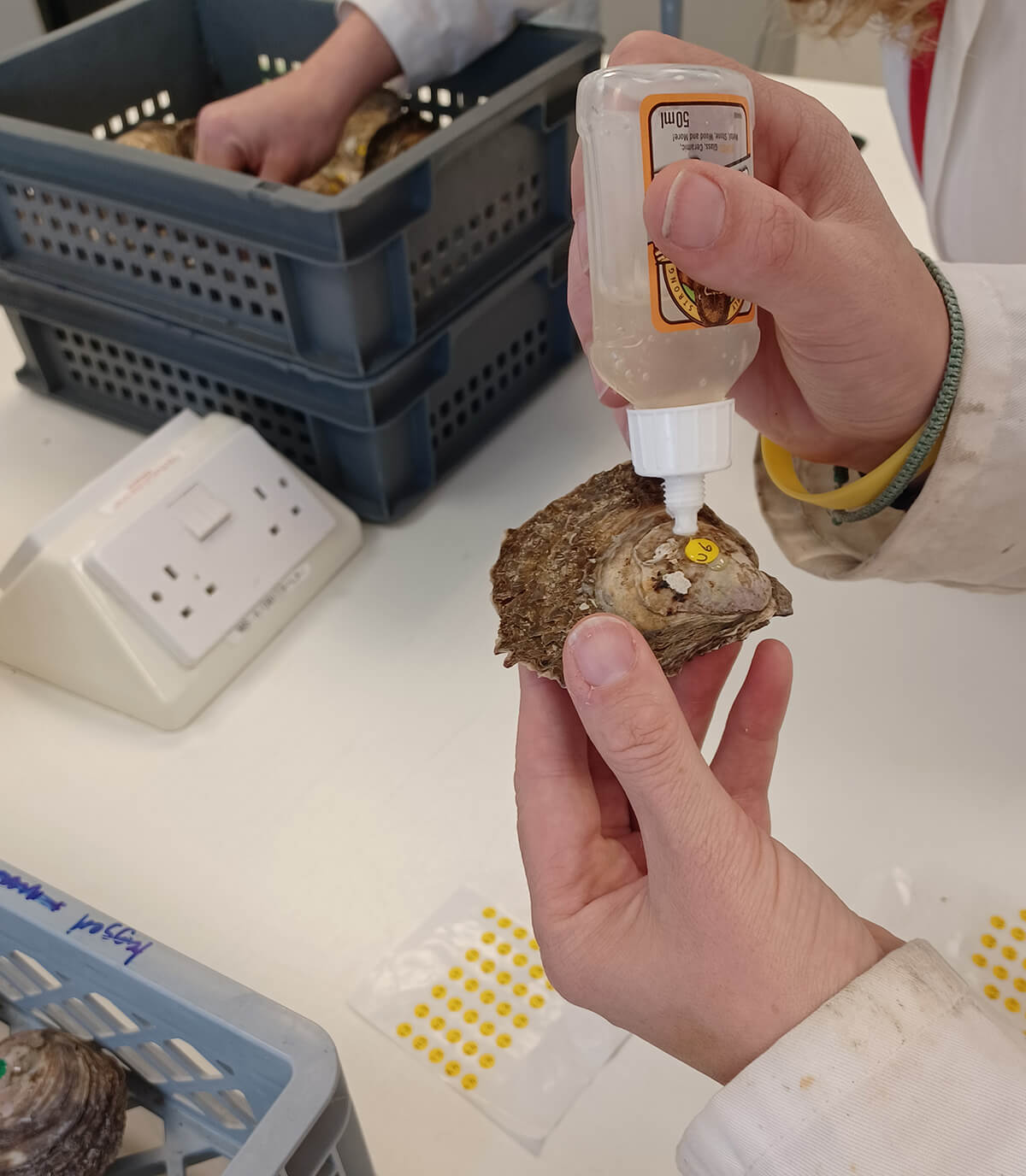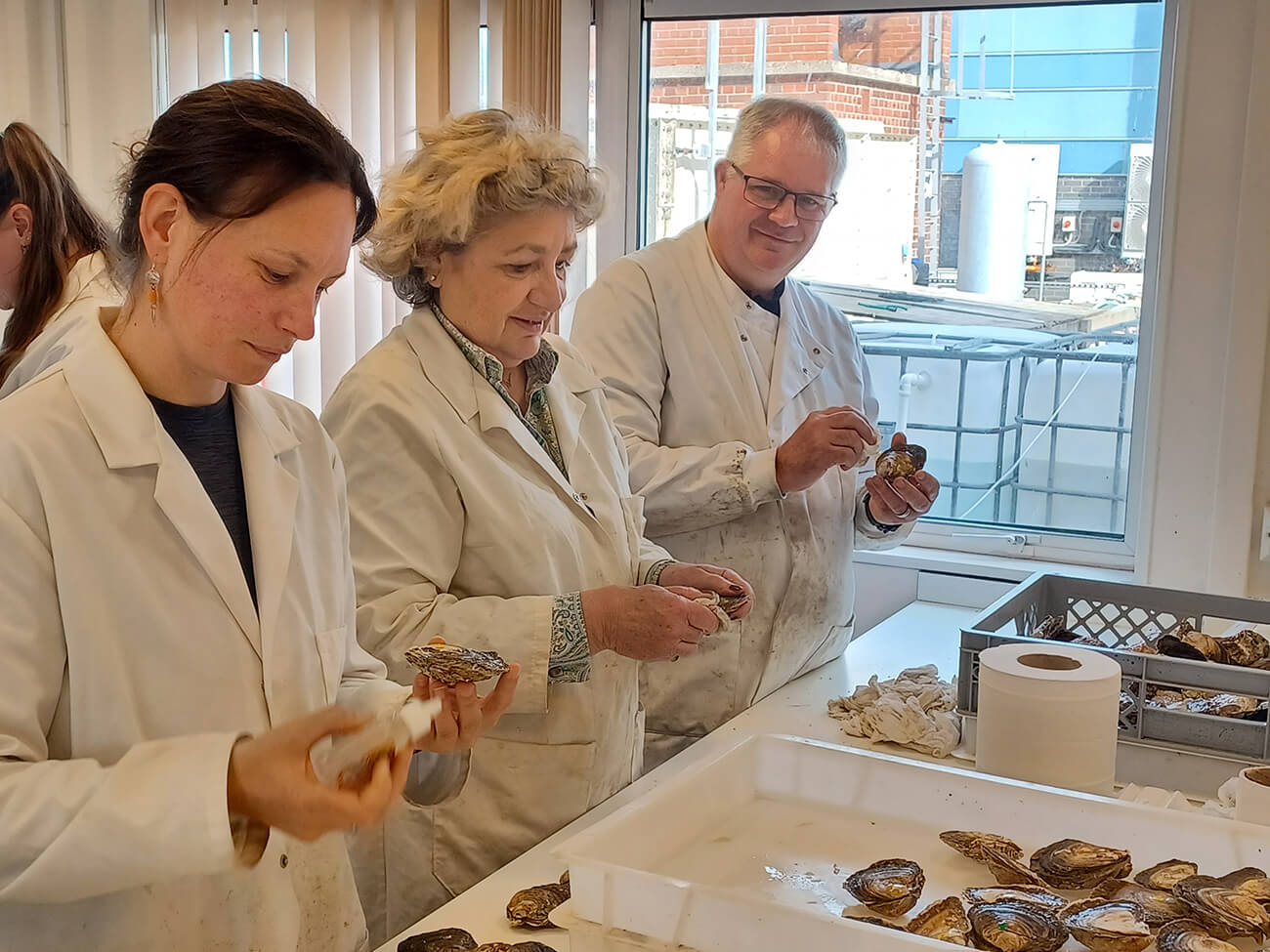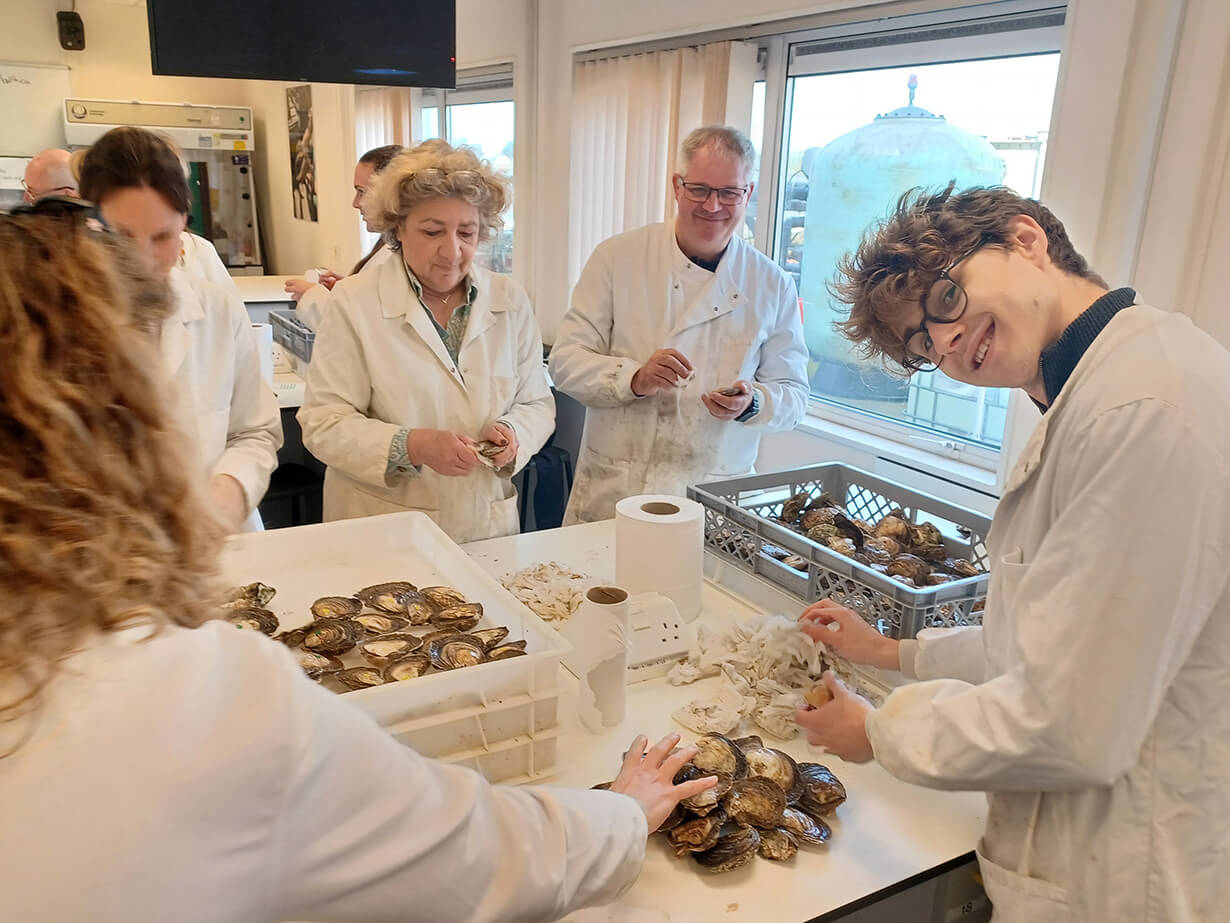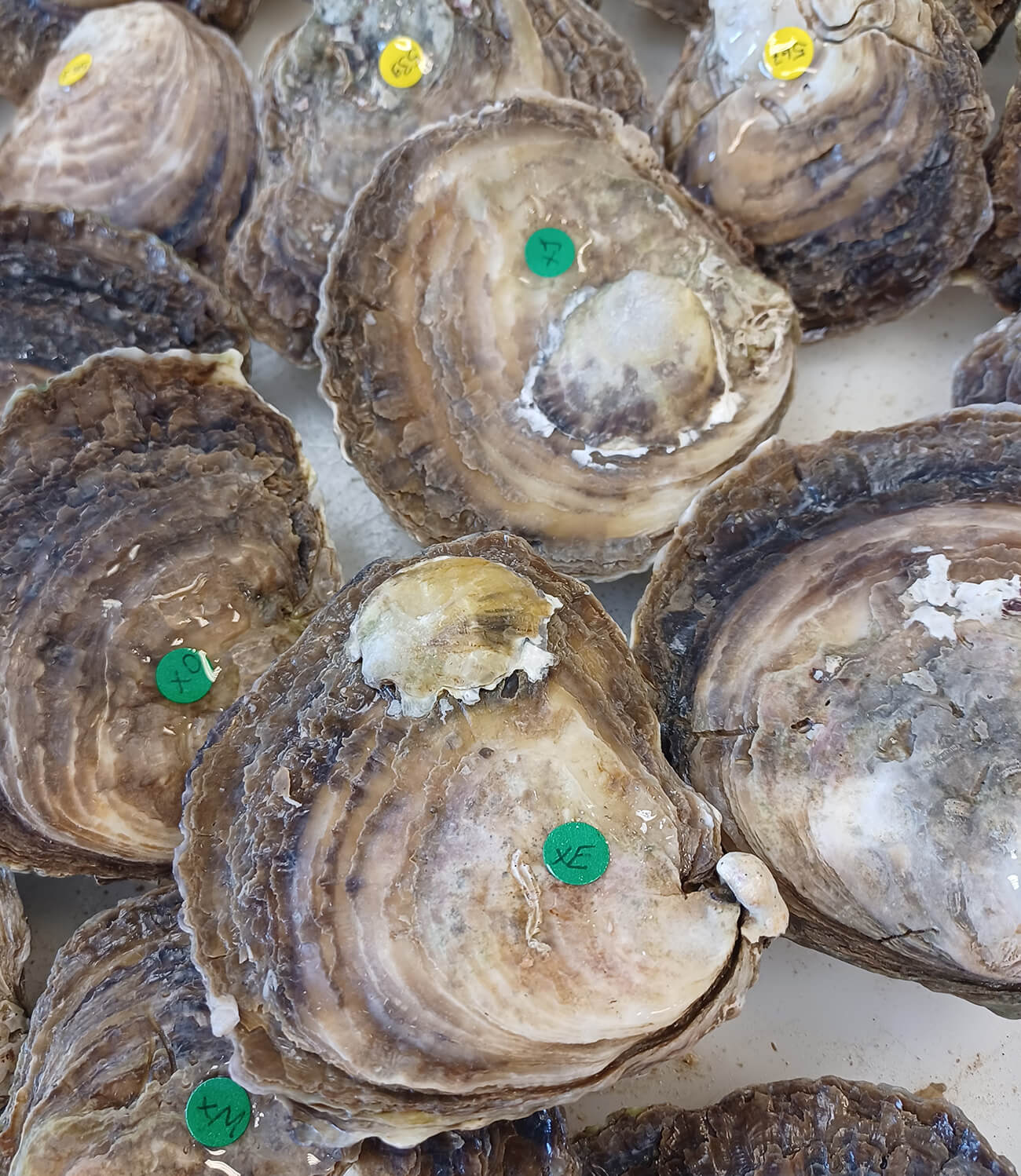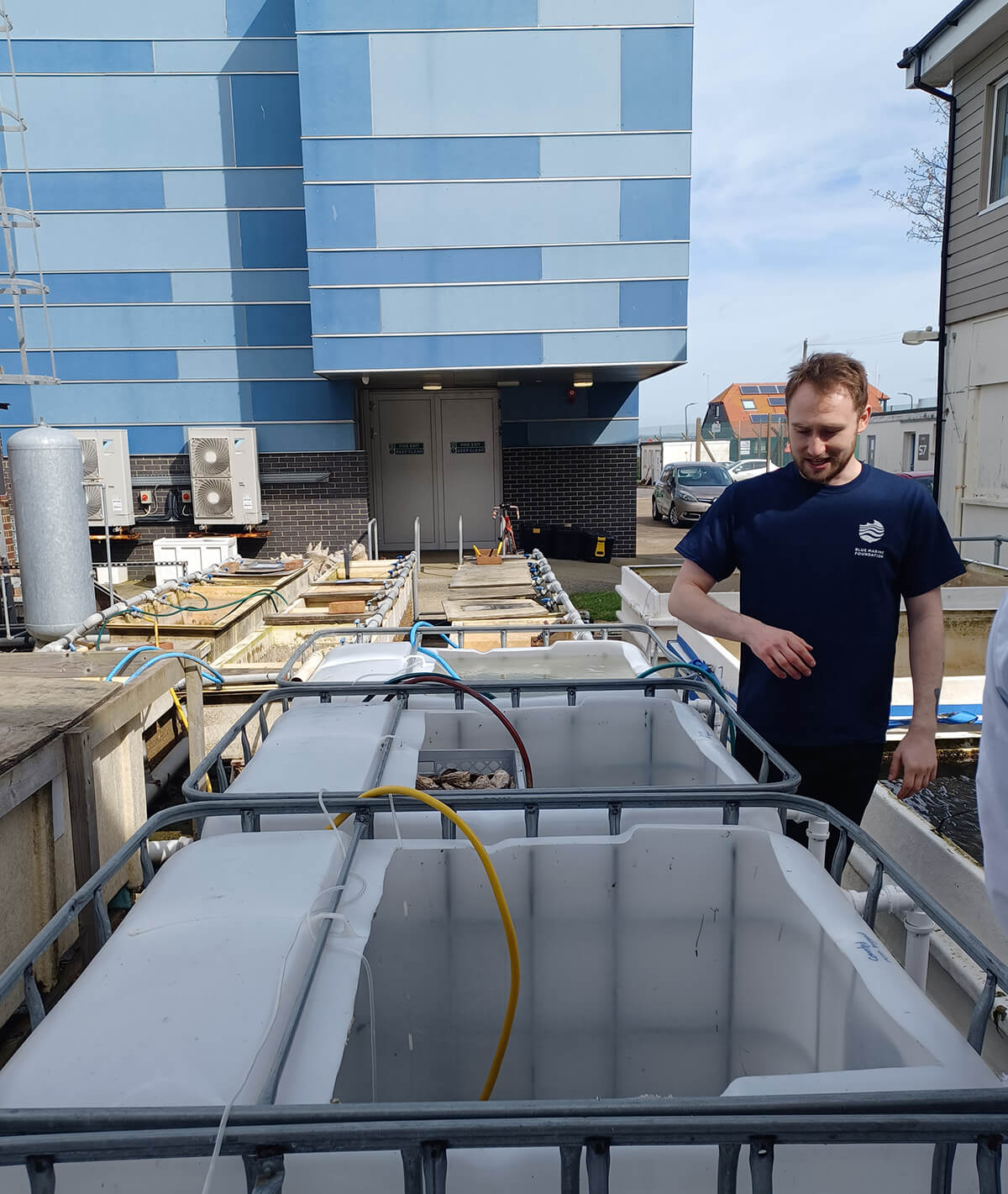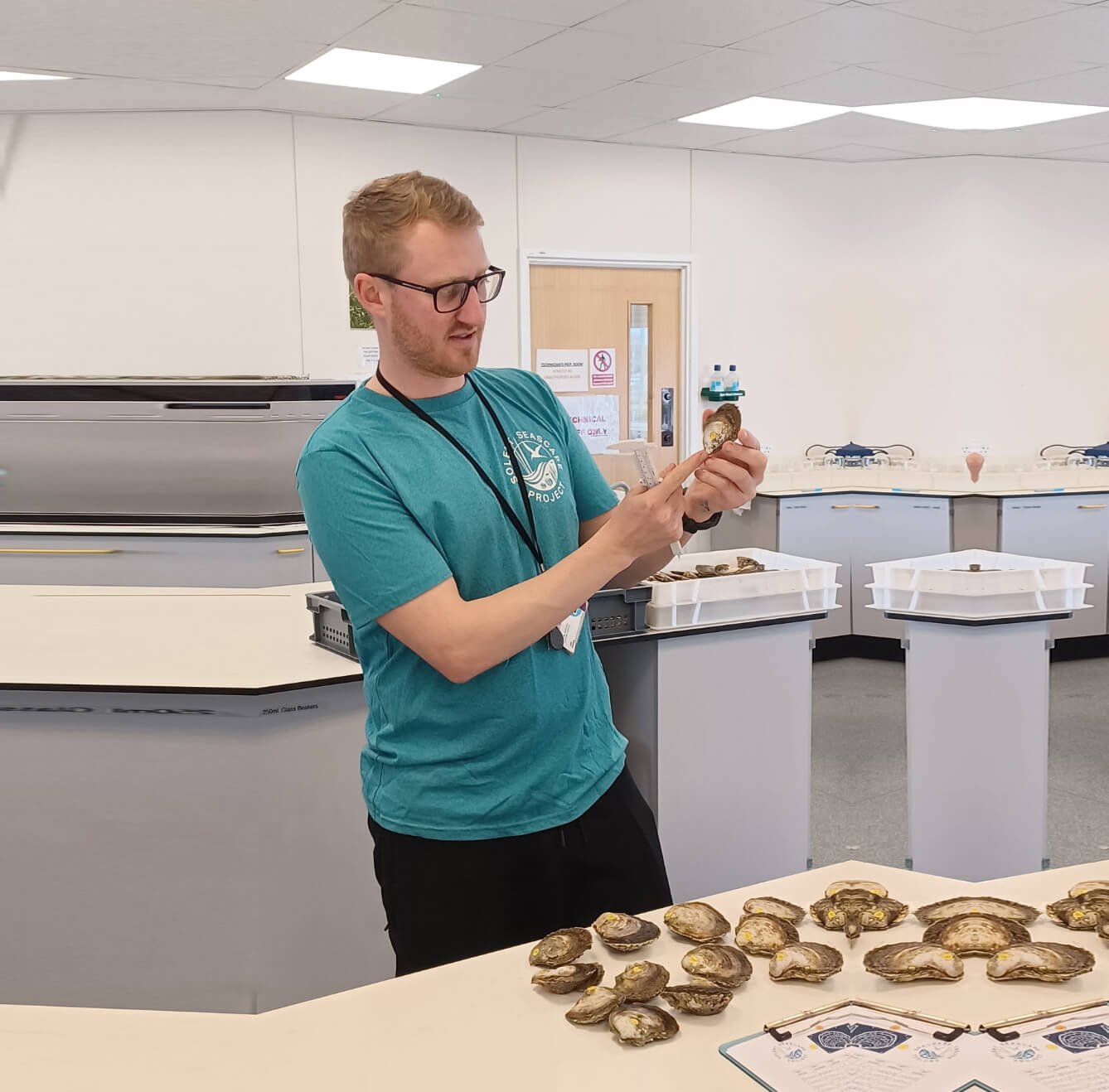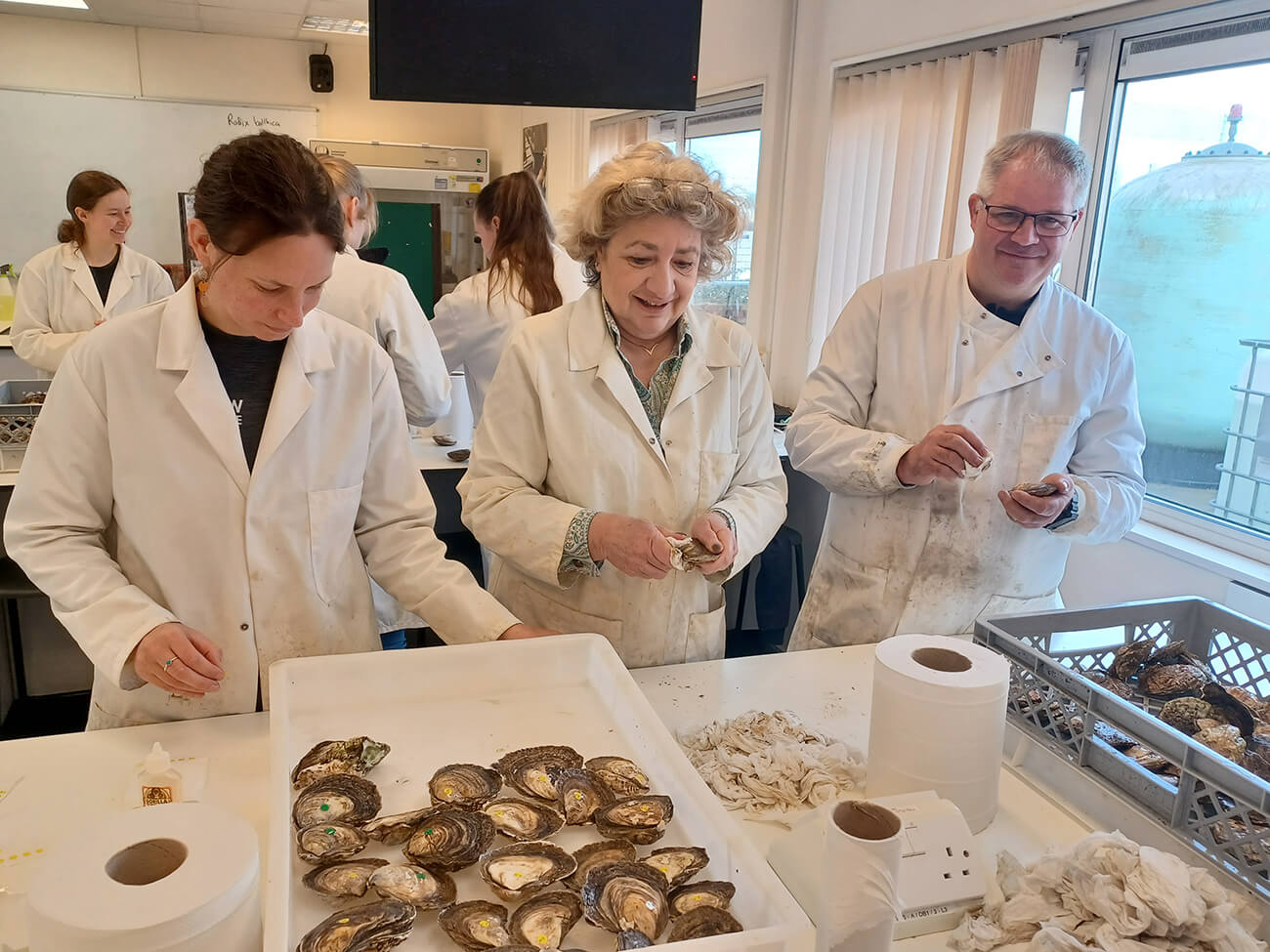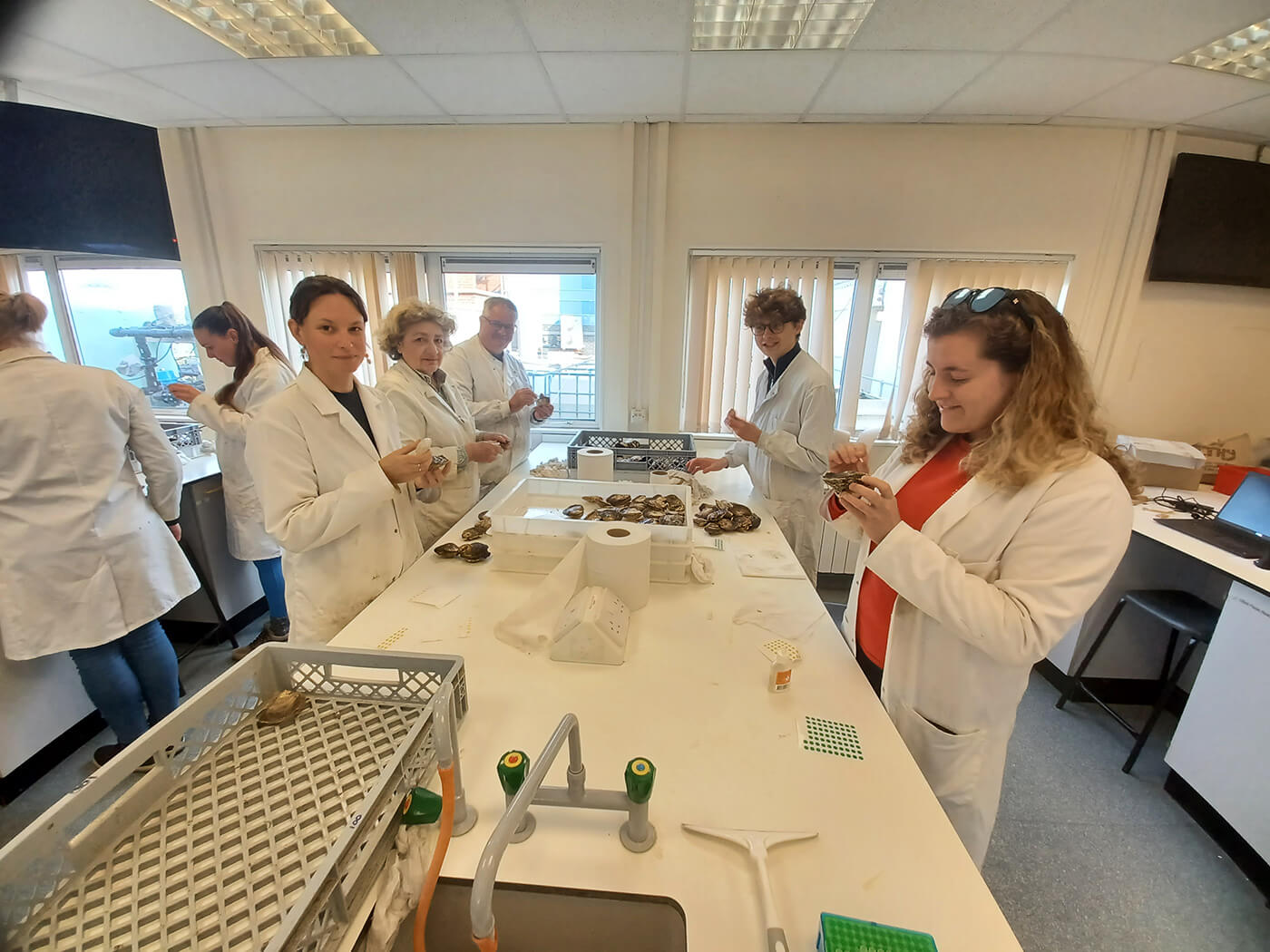Antac Support Services supported the restoration of approx. 150 sq m of native oysters in the Solent in 2024
Antac Support Services has chosen to support native oyster restoration in the Solent (the strait that separates the Isle of Wight from mainland England) in partnership with GreenTheUK to support the vital work of Blue Marine Foundation.
Native oysters are classified as a priority species in the UK Biodiversity Action Plan and restoration is a high priority at a national, European and global level. An estimated 85 percent of oyster beds and oyster reef habitats have been lost worldwide, making them among the most imperiled marine habitats. As ecosystem engineers, oysters provide a range of benefits to the environment and local communities:
- They improve water quality: a single oyster can filter up to 200 litres of water every day;
- They provide habitat to hundreds of other species: fish and marine life;
- They are a natural defence to coastal erosion;
- They were a valuable food source (with evidence dating back to the Roman Times in the UK), yet this benefit has been lost due to their more recent dwindling numbers in the Solent.
Antac Support Services has helped support the restoration of oyster reefs in areas protected from fishing to help re-establish wild populations. This work is in collaboration with the University of Portsmouth, where we have deployed adult oysters in the Solent on to newly formed reefs to significantly scale the restoration work. The aim of the project is to actively restore 4 hectares (40,000 square meters) of oysters.
Project Overview
The Solent Oyster Restoration Project is part of a wider project called the Solent Seascape Project which aims to reconnect the Solent into a functioning seascape by improving the condition, extent, and connectivity of key marine and coastal habitats, using protection and restoration initiatives.
The Solent Seascape Project is the first of its kind in the UK to initiate seascape recovery on a grand scale. Our long-term vision is to protect and restore at least 30 per cent of the Solent’s seascape, tipping the balance from a degraded state to a naturally expanding, connected and productive ecosystem. By restoring and connecting the Solent’s seascape, we will provide nature-based solutions to many of the issues currently affecting it and the people who depend on it, as well as helping to fight the impacts of climate change.
Antac Support Services' Impact
Aided by Antac Support Services, the Solent Oyster Restoration Project has made good progress along various aspects of oyster restoration during the last six months. The team has now actively restored approximately 2,500 square meters of oyster reef - close to 150 square metres of which is thanks to Antac Support Services. In the River Hamble, we deployed 20,000 native oysters, and Blue Marine and the University of Portsmouth retrieved (what appears to be) native oyster spat for the first time in Langstone Harbour since the project began. If oyster spat are present in the River Hamble, it will mean that the re-introduced oysters have started breeding which is crucial to the future of the reef. If the oysters continue to reproduce, the reef will become fully self-sustaining whilst continuing to grow.
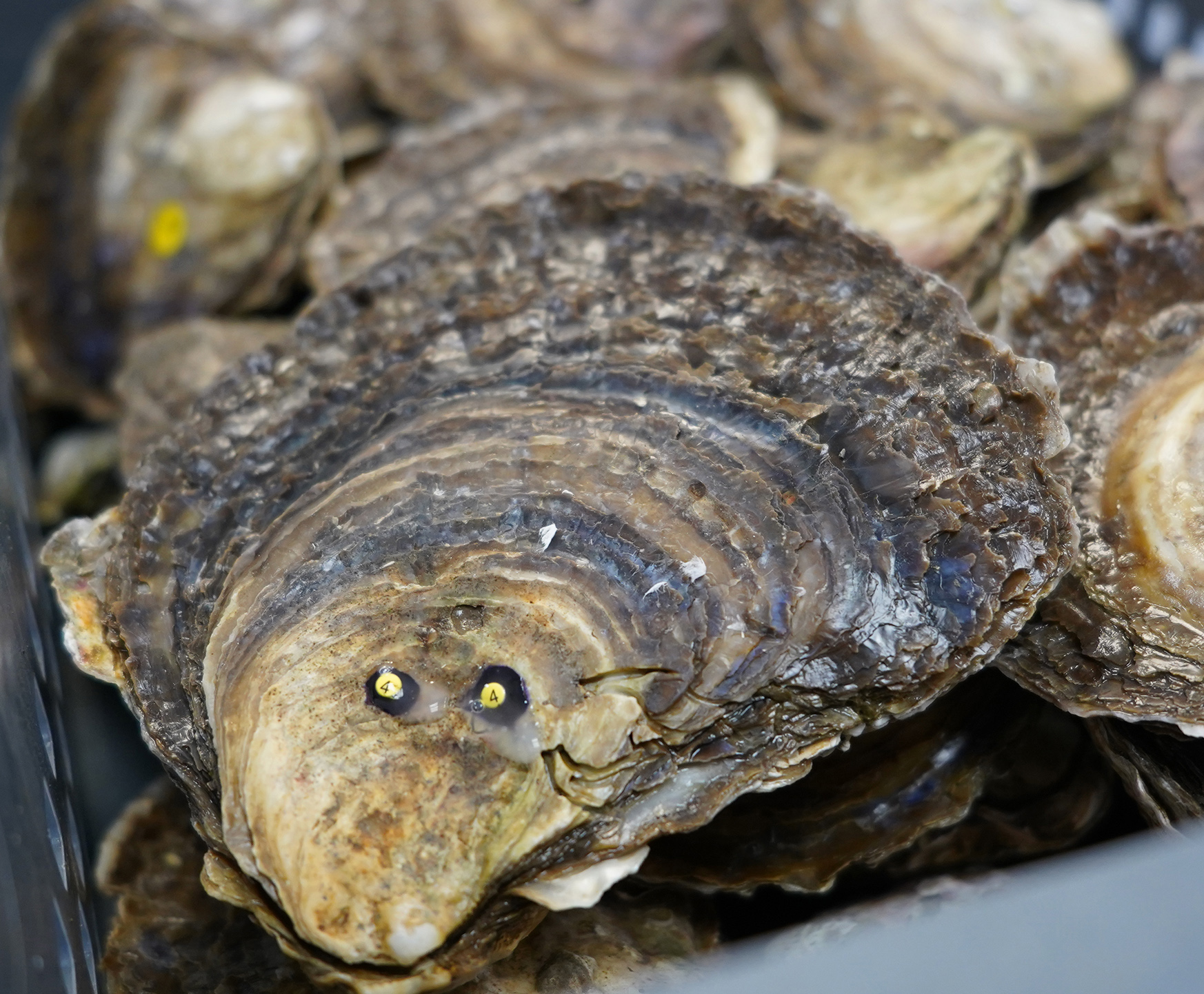 20,074 oysters have been deployed in River Hamble since 2023, restoring 0.25ha. Credit: Luke Helmer
20,074 oysters have been deployed in River Hamble since 2023, restoring 0.25ha. Credit: Luke Helmer
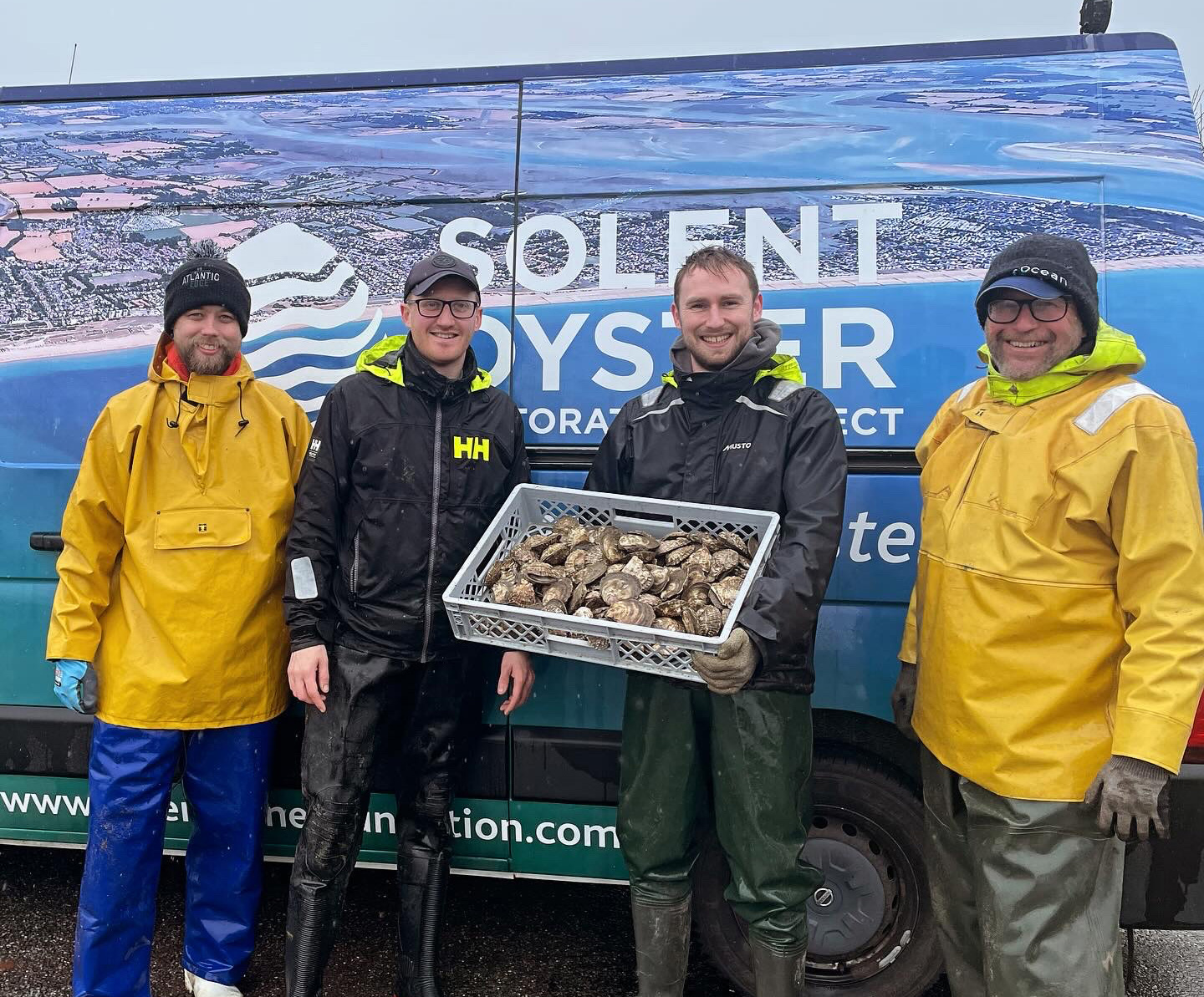 Our project team collecting oysters for restoration. Credit: Solent Seascape Project
Our project team collecting oysters for restoration. Credit: Solent Seascape Project
Current oyster reefs in the Solent
Following advice from the Oyster Technical Working Group (TWG) on 1 November 2023, we are pausing the extension of the reef in Langstone Harbour. Monitoring has revealed an increase in sedimentation and a dramatic decrease in live oysters/cultch at the site during routine sampling in summer 2023. The TWG advised conducting hydrodynamic modelling to understand where oysters and cultch may move during high tidal flows, and to continue monitoring the site as well as understanding what happens at the newest reef in the River Hamble.
Recent monitoring work at the River Hamble reef has shown promising preliminary results with live oysters on cultch present a year after deployment. The River Hamble Harbour Authority have even heard the reef using hydrophones! The marine license for this site allows for significant extension of the reef area -potentially doubling the area to 0.5ha which we will be exploring following full monitoring results.
Synergizing with Local Nature Recovery Strategies
Local Nature Recovery Strategies (LNRSs) are a new mandatory system of strategies under the Environment Act 2021 that apply to certain geographical areas, ensuring that opportunities to recover nature are joined up. To ensure longevity of the Solent Oyster Restoration Project, its Seascape Recovery Plan will form a key part of the marine and coastal chapter within the LNRS. Particularly, its aim is to reduce and remove pressures currently damaging habitats and species. The Seascape Recovery Plan will also play a key role in identifying priority areas for stakeholders who wish to focus their efforts on (both active and passive) restoration, which will contribute to nature recovery in the Solent.
The Solent Oyster Restoration Project has been covered in the media by the BBC and Charity Today:
- “First oysters introduced to island's harbour” BBC, October 2023
- “UKSA officially launches the Isle of Wight’s first oyster regeneration project” Charity Today, October 2023
Antac Support Services' support is key to recreating such an important habitat in the UK. The oysters they’ve sponsored are the foundation of a reef that provides habitat to numerous other significant and rare species. They also have the capacity to filter enough seawater every day to fill dozens of olympic sized swimming pools. As the oysters supported by Antac Support Services grow and reproduce, their positive impact will multiply with them.

UN's Sustainable Development Goals
As a GreenTheUK partner, you support projects that are in line with the UN Sustainable Development Goals.

Take urgent action to combat climate change and its impacts.

Conserve and sustainably use the oceans, seas and marine resources for sustainable development.




















